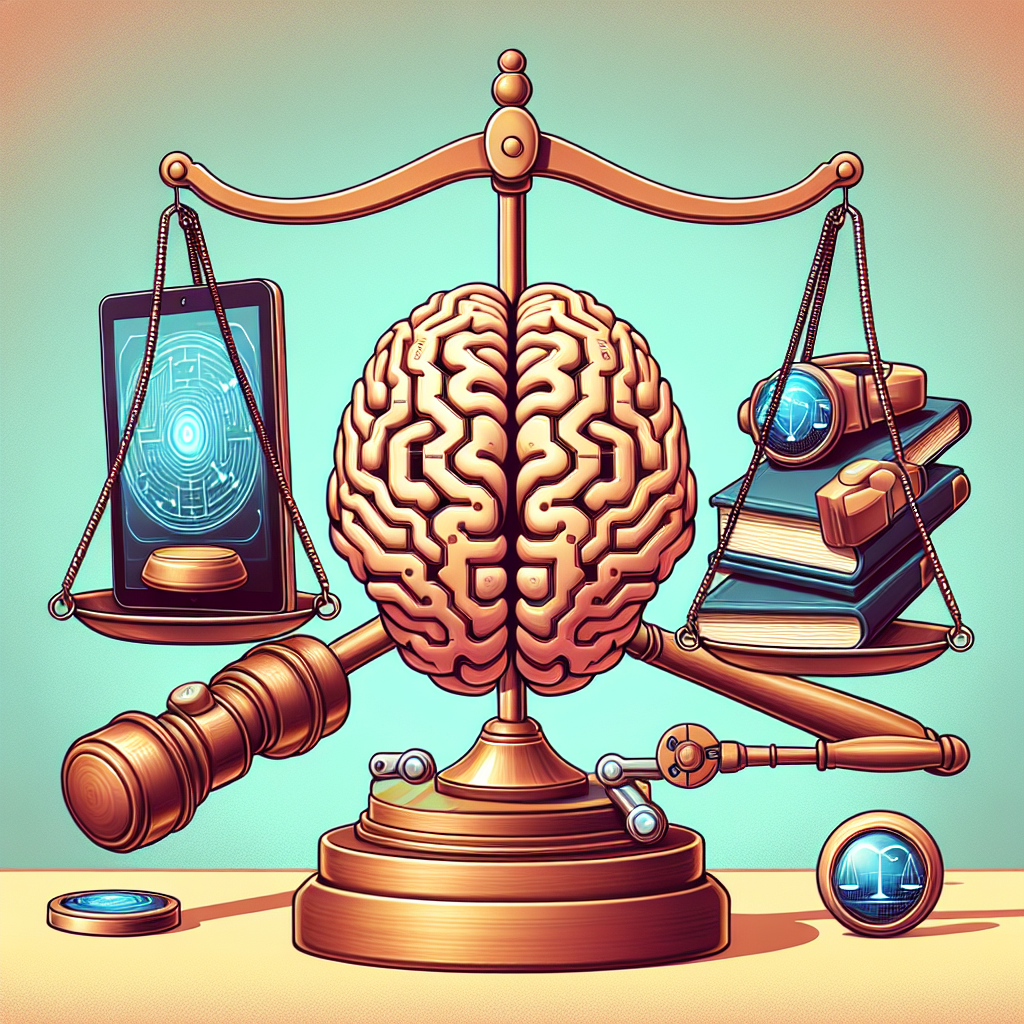Artificial Intelligence (AI) is transforming the way we live and work, and the field of legal education is no exception. AI technologies are being increasingly integrated into legal education to enhance learning experiences, improve efficiency, and provide new tools for students and educators. However, as with any technology, there are ethical considerations that must be taken into account when implementing AI in legal education.
Ethical considerations for AI in legal education revolve around issues such as data privacy, bias and discrimination, transparency, accountability, and the impact on human skills and decision-making. It is important for educators, administrators, and policymakers to carefully consider these ethical considerations in order to ensure that AI technologies are used in a responsible and ethical manner.
Data Privacy
One of the primary ethical considerations for AI in legal education is data privacy. AI technologies collect and analyze large amounts of data in order to make predictions and recommendations. This data can include sensitive information about students, faculty, and other stakeholders in the legal education ecosystem.
It is important for institutions to have robust data privacy policies in place to protect the confidentiality and security of this data. Students and faculty should be informed about how their data is being used and have the opportunity to opt out of data collection if they so choose. Additionally, institutions should regularly audit their AI systems to ensure that data is being handled in a secure and ethical manner.
Bias and Discrimination
Another ethical consideration for AI in legal education is the risk of bias and discrimination in AI algorithms. AI systems are only as good as the data they are trained on, and if that data is biased or incomplete, the AI system may produce biased or discriminatory outcomes.
Educators and administrators must be vigilant in monitoring AI systems for bias and discrimination and take steps to mitigate these risks. This can include diversifying training data, using transparent and explainable AI algorithms, and regularly auditing AI systems for bias and discrimination.
Transparency
Transparency is another key ethical consideration for AI in legal education. AI systems can be opaque and difficult to understand, making it challenging for students and faculty to trust the recommendations and decisions made by these systems.
Institutions should strive to make AI systems as transparent as possible by providing explanations for how recommendations are generated, what data is being used, and how decisions are being made. This can help build trust and confidence in AI technologies and promote greater acceptance and adoption of these tools in legal education.
Accountability
Accountability is also an important ethical consideration for AI in legal education. It is essential to establish clear lines of responsibility for the decisions made by AI systems and ensure that there are mechanisms in place to hold individuals and institutions accountable for the outcomes of these decisions.
Educators and administrators should establish policies and procedures for oversight and accountability of AI systems, including mechanisms for addressing errors, complaints, and appeals. This can help ensure that AI technologies are being used responsibly and ethically in legal education.
Impact on Human Skills and Decision-Making
Finally, ethical considerations for AI in legal education should take into account the impact of AI technologies on human skills and decision-making. While AI can augment and enhance human capabilities, there is a risk that overreliance on AI systems can erode critical thinking skills, legal reasoning, and ethical judgment.
Educators should strive to strike a balance between using AI technologies to enhance learning experiences and preserve the importance of human skills and decision-making in legal education. This can include integrating AI tools into the curriculum in a way that promotes critical thinking and ethical reasoning, rather than relying on AI systems as a substitute for human judgment.
In conclusion, ethical considerations for AI in legal education are essential for ensuring that AI technologies are used in a responsible and ethical manner. By addressing issues such as data privacy, bias and discrimination, transparency, accountability, and the impact on human skills and decision-making, educators and administrators can harness the power of AI to enhance learning experiences and improve outcomes in legal education.
FAQs
Q: What are some examples of AI technologies being used in legal education?
A: Some examples of AI technologies being used in legal education include chatbots for answering student questions, predictive analytics for identifying at-risk students, and natural language processing for analyzing legal texts and case law.
Q: How can institutions ensure data privacy when using AI in legal education?
A: Institutions can ensure data privacy by implementing robust data privacy policies, informing students and faculty about how their data is being used, and regularly auditing AI systems for compliance with data privacy regulations.
Q: How can educators mitigate the risk of bias and discrimination in AI algorithms?
A: Educators can mitigate the risk of bias and discrimination by diversifying training data, using transparent and explainable AI algorithms, and regularly auditing AI systems for bias and discrimination.
Q: What steps can institutions take to promote transparency in AI systems?
A: Institutions can promote transparency by providing explanations for how recommendations are generated, what data is being used, and how decisions are being made. This can help build trust and confidence in AI technologies.
Q: How can educators balance the use of AI technologies with the preservation of human skills and decision-making in legal education?
A: Educators can balance the use of AI technologies by integrating AI tools into the curriculum in a way that promotes critical thinking and ethical reasoning, rather than relying on AI systems as a substitute for human judgment.

